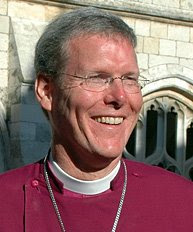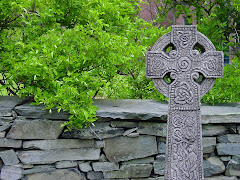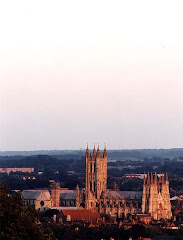Indaba: the word is Zulu and Xhosa and means quite simply “an important conference or gathering.”
It describes a process used in a number of African countries by which a community can address any problem or issue that may arise. It demands a kind of corporate or communal listening, as I understand it, that is based on real attentiveness to “the other” and is characterized by two key features: (1) that the community as a whole must define the problem or issue without rushing to a conclusion until the point is reached that everyone can agree upon what the problem or issue actually is; and (2) that in both defining and resolving the problem or issue at hand, every individual must be able to speak and every voice is heard.
The process of indaba has been perhaps the most innovative feature of this year’s Lambeth Conference—a gathering that has been radically overhauled in terms of its organization and structure. Rather than plenary sessions with many hundreds in attendance, affording few and time-limited opportunities for only a handful of bishops to find their way to microphones to publicly state positions, we have been working from the first day of the conference through a process of small group bible study (eight bishops) followed by “Indaba Groups” (forty bishops) in an effort to meet face to face, to speak our hearts and minds, and to really listen to one another—something that is far too rare for a body that claims to be a global communion.
Although the process as it has been practically implemented here has been widely criticized, I am mindful of the question posed by the Archbishop of Canterbury during his first presidential address—that is, “how effective has the old process been?”
In spite of its flaws, I have found that in my “Indaba Group” we are indeed speaking our hearts and minds, we are listening, and in a process that may not travel easily across cultural differences, we are teasing out a more fulsome description of our life and our issues as a communion.
That process stands in stark contrast to the second hearing of the “Windsor Continuation Group” that was held yesterday afternoon. Picture a large plenary session in a sweltering hot room with few and time-limited opportunities (three minutes for each speaker to be exact) for a handful of bishops (approximately 20-25 according to my math) to find their way to a microphone and state their position in response to a paper entitled “Preliminary Observations Part Three” (a document that was officially released to the press this afternoon, is said to be provisional in nature, about which some are rushing to conclusions, and because of which levels of anxiety are inevitably rising both here and at home).
It’s not that there weren’t good and helpful contributions from those who spoke at the hearing, and as deeply challenging and offensive as I may have found some comments, it was still good and helpful to listen.
But as a bishop from another part of the world said only a few days ago, so long as we gather in the old ways “we shall only be doing difference as difference has always been done.” Instead, he continued, “we need to do difference differently.”
In the spirit of indaba, I am not rushing to conclusions.
Last night when Sir Jonathan Sacks (Chief Rabbi of the United Hebrew Congregations of the British Commonwealth) spoke to us about the concept of covenant, he observed that “the hardest thing in the world is to hold the adherents of a faith together.” He said, “The Anglican Communion has held together more strands of faith and has done it more graciously and successfully than any other religion I know.” He concluded quite simply and powerfully by saying, “This is your unique contribution to the world.”
Perhaps the heart of Anglican Christianity, in its own peculiar but wonderful way, is indaba after all.
Tuesday, July 29, 2008
Subscribe to:
Post Comments (Atom)



2 comments:
(1)...that the community as a whole must define the problem or issue...
...(2) that in both defining and resolving the problem or issue at hand, every individual must be able to speak and every voice is heard.
But, Your Grace, how can you all even pretend that this process is being followed on the subject of sexuality when no one in the indaba groups is representative of the subject matter?
Are there gay & lesbian bishops speaking in the groups? Are there bisexual bishops speaking in the groups? Are there transgendered bishops speaking in the groups?
Until there are, you all cannot come close to achieving points 1 or 2.
It would be as if only men were deciding women's participation in ministry.
It would be as if only white folks were deciding participation of peoples of color in ministry.
Until we are seated at the table with you, representing ourselves, it is a facade. Until we are speaking for ourselves of our witness of God through Jesus Christ manifest in our own lives, instead of being spoken about, as if we did not exist or being spoken to, as as if we do not count, it is not Indaba. It is a sham.
And the only known bishop qualified to speak to the issue of sexuality as one of us, the Rt Revd Gene Robinson, is persona non grata at the Lambeth Conference.
Respectfully,
David
Parroquia de la Sagrada Familia
Diócesis de México Norte
Iglesia Anglicana de México
I love the image of the Anglican Communion serving as an "Indaba" and not rushing into the need to solve problems prematurely, to hear one another out with respect and patience. However, I share the views of the previous commenter that without Bishop Gene Robinson present, a man who was elected and approved through the polity of our church adn recognized as a bishop by our corner of the communion, "everyone" has not had the opportunity to speak. Have the women bishops been excluded from the dialogue because many of the individual communions have not yet seen fit to ordain women?
Post a Comment